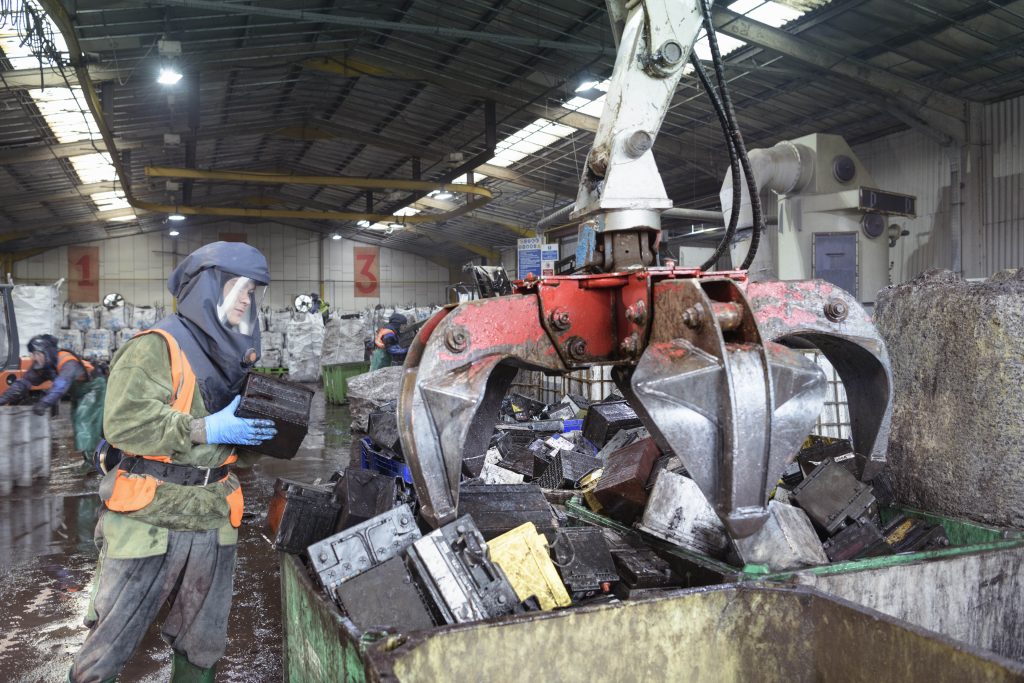Table of Contents
Recycling plays a pivotal role in preserving our environment and reducing the burden of waste on our planet. In the United Kingdom, the recycling industry has seen both successes and challenges over the years. As we approach 2024, significant changes are on the horizon, with the UK government set to introduce measures that could reshape the recycling landscape. In this article, we will delve into these upcoming government initiatives and their potential impact on the recycling industry.
1. The Current State of Recycling in the UK
The recycling landscape in the UK is a mixed bag. On one hand, recycling rates have improved in recent years, and people are becoming more conscious of the need to recycle. However, challenges such as contamination of recyclables and the disposal of non-recyclable waste persist.
2. The Importance of Government Intervention
The significance of government intervention in the recycling industry cannot be overstated. While individual efforts to recycle are important, they alone cannot address the complex challenges associated with waste management on a national scale. Here’s why government action is crucial:
- Standardisation and Regulation: Governments can establish consistent recycling standards and regulations that apply nationwide. This ensures that recycling practices are uniform and adhere to environmental best practices.
- Financial Support: Recycling infrastructure, such as sorting facilities and recycling plants, often requires substantial investments. Government funding and incentives can stimulate private sector investments, making it more economically viable for businesses to engage in recycling initiatives.
- Consumer Behaviour: Government policies can influence consumer behaviour. Awareness campaigns, combined with incentives like tax breaks or subsidies for eco-friendly products, can encourage individuals to reduce, reuse, and recycle.
- Waste Reduction Targets: Governments can set ambitious waste reduction targets that drive the industry and consumers toward sustainable practices. These targets can align with broader environmental goals, such as reducing carbon emissions and conserving natural resources.
3. Overview of UK Government Measures from 2024
The UK government is taking a proactive approach to address the recycling challenges facing the nation. Beginning in 2024, several key measures are set to reshape the recycling landscape:
- Extended Producer Responsibility (EPR): EPR regulations will fundamentally shift the dynamics of waste management. Producers will become responsible for the entire life cycle of their products, from design to disposal. This approach will incentivise manufacturers to design products with recyclability in mind, reducing the environmental impact of packaging.
- Deposit Return Scheme (DRS): The introduction of a DRS for beverage containers is a groundbreaking step. It will encourage consumers to return bottles and cans for recycling by offering a deposit refund. This not only promotes recycling but also reduces litter and incentivises responsible consumption.
- Single-Use Plastics Tax: A single-use plastics tax will discourage the use of harmful plastic materials by imposing financial penalties on their production and distribution. This measure aims to accelerate the transition to alternative, sustainable packaging materials.
- Recycling Infrastructure Investment: To support these initiatives, the government plans to invest significantly in recycling infrastructure. This includes the expansion of recycling facilities, the modernisation of waste sorting processes, and the development of innovative recycling technologies. These investments will enhance the capacity and efficiency of the recycling industry.
- Circular Economy Strategy: Beyond 2024, the UK government has outlined a comprehensive Circular Economy Strategy. This long-term vision aims to minimise waste generation, maximise resource efficiency, and promote a sustainable and regenerative economy. It underscores the government’s commitment to a circular approach to materials and waste.
These measures collectively represent a bold step forward in the UK’s commitment to environmental sustainability and circular economy principles. They acknowledge that recycling is not just an individual responsibility but a shared endeavour that requires coordinated action from government, industry, and citizens alike.
4. Potential Impact on the Recycling Industry
These government measures are expected to have a profound impact on the recycling industry. On one hand, EPR and infrastructure investments may create opportunities for growth and innovation. However, the single-use plastics tax could challenge businesses using such materials. Experts anticipate that businesses will need to adapt swiftly to remain competitive.
5. Challenges and Opportunities for the Recycling Industry, Including Wash Plants
While challenges are evident, opportunities for growth and innovation are equally prevalent. Recycling businesses can seize the moment by embracing sustainable practices, investing in new technologies, and exploring alternative materials. Here, we’ll delve into these opportunities, including the role of wash plants:
- Investing in Modern Recycling Technologies: To meet the demands of a changing recycling landscape, businesses can invest in modern recycling technologies. This includes the installation of advanced sorting equipment, such as optical sorters and eddy current separators, which can efficiently separate recyclable materials from waste streams.
- Utilising Wash Plants: Investing in wash plants plays a crucial role in recycling processes, particularly for materials like plastics and glass. These plants clean and prepare recyclables for processing, removing contaminants and ensuring higher-quality end products. Investing in such technology can lead to improved recycling efficiency and product quality.
- Exploring Alternative Materials: As the demand for sustainable packaging materials grows, businesses can explore alternative materials such as bioplastics, paper, and compostable packaging. These materials not only reduce reliance on single-use plastics but also open new markets for eco-friendly products.
- Collaborating with Government Initiatives: Collaboration with government initiatives, such as EPR and DRS, can lead to partnerships that benefit both businesses and the environment. By aligning with these regulations, recycling companies can tap into new revenue streams and participate in industry-wide efforts to reduce waste.
- Consumer Education and Engagement: Educating consumers about the importance of recycling and the proper way to recycle is crucial. Recycling businesses can actively engage with their communities through educational programs, workshops, and outreach efforts to promote responsible recycling practices.
- Circular Economy Initiatives: Exploring circular economy initiatives, such as closed-loop systems and product take-back programs, can be a strategic move. These approaches emphasise the recycling and repurposing of materials within a closed system, reducing waste and conserving resources.
By capitalising on these opportunities, recycling businesses can not only adapt to the changing regulatory landscape but also lead in sustainability efforts. Wash plants, in particular, are an essential part of the equation, ensuring that recyclables are thoroughly cleaned and prepared for reuse or remanufacturing. Together, these strategies pave the way for a more sustainable and prosperous future for the recycling industry.
6. Public Engagement and Education
Active public engagement and education will be crucial to the success of these government measures. Citizens need to understand the importance of recycling and how they can participate effectively. Government campaigns and community initiatives will play a vital role in driving public awareness and participation.
Conclusion
In conclusion, the UK government’s upcoming recycling measures are a significant step towards a greener future. These initiatives, while posing challenges, also provide exciting opportunities for the recycling industry to evolve and lead in sustainability. As consumers and businesses alike adapt to these changes, we can look forward to a cleaner, more eco-friendly future where recycling plays a central role in preserving our environment.





